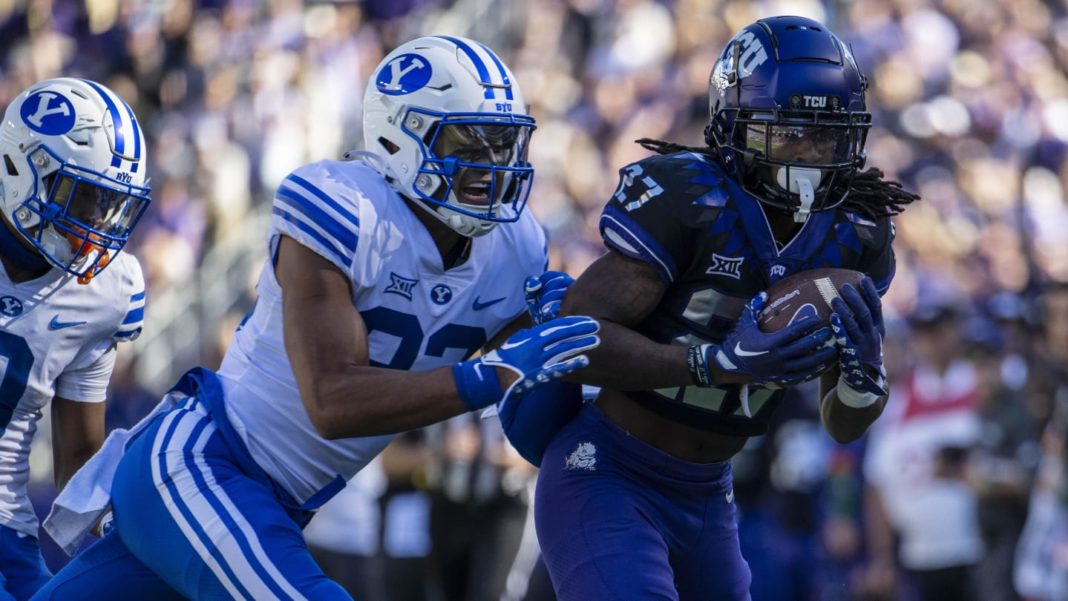Athlete revenue sharing is coming to college athletics. Back in May, the NCAA and the Power Four conferences agreed to allow schools to directly pay players. The agreement comes as part of a settlement for a handful of antitrust cases. The revenue-sharing plan will allow every Power Four school to share over $20 million per year with its athletes. On Friday, TCU announced its plans to “fully participate at the maximum level in this permissible revenue sharing plan with our student-athletes”
“At TCU, athletics serves as the front porch of our university,” TCU director of athletics Jeremiah Donati announced. “We are committed to maintaining TCU’s position as a member of the top echelon of athletics – competitive at the highest level. Our athletics programs add value to TCU’s reputation as a leading university, enhances student recruitment efforts and helps define TCU’s unrivaled student experience.”
The TCU announcement was significant for BYU and the rest of the Big 12. If one member of the conference is pledging full participation in athlete revenue sharing, the rest of the conference will need to participate in order to keep up.
Schools across the country are concerned about the prospect of paying $20 million annually to their athletes. Not because they don’t have enough revenue to go around – they certainly do. Over the last couple decades in college sports, however, major college athletic departments have been in an arms race to build the best facilities, hire the biggest staffs, and pay for every competitive advantage imaginable. If they’ve earned a dollar, they’ve spent that dollar. These athletic departments haven’t been making a profit to pay shareholders – they’ve been spending everything they make in the name of winning.
Can those schools really unwind those costs to absorb $20 million annually? TCU can, and TCU is exactly the kind of school that BYU will be competing against.
Earlier, we analyzed BYU’s ability (or inability) to afford athlete revenue sharing. While it’s never easy to absorb $20 million in annual expenses, there might not be a better time in BYU history to do it.
TCU was crystal clear that athletics are the “front porch” of their university. If BYU hopes to have sustained success in the Big 12, BYU will need to spend at similar levels as their conference peers.
BYU has talked about projects like renovating Lavell Edwards Stadium. Perhaps projects like that will need to wait while BYU gets accustomed to athlete revenue sharing.
College athletics has already undergone major changes over the last ten years. More change is coming and it’s up to BYU to adapt and remain competitive.


